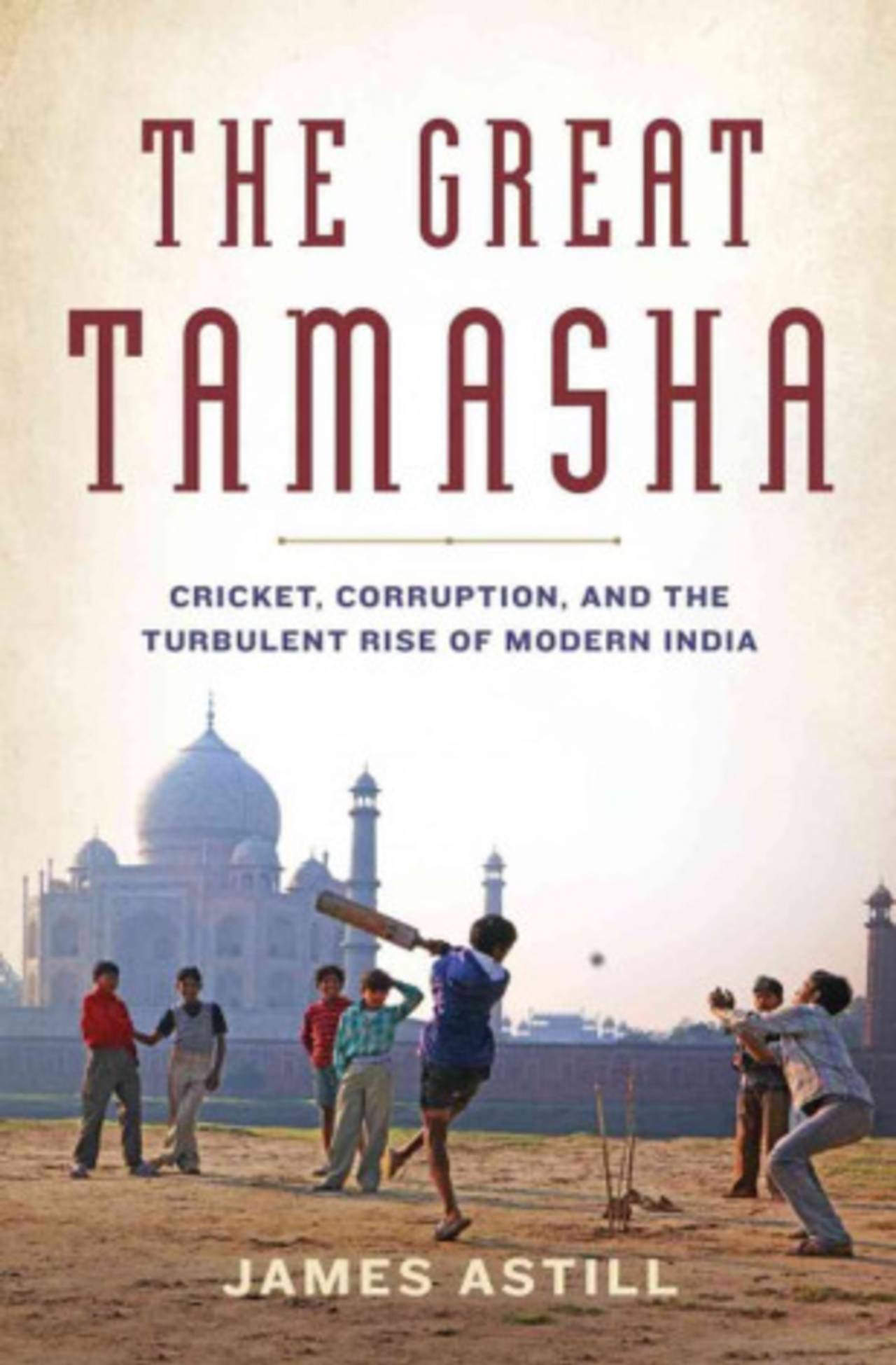India via its cricket
A new book by a foreign correspondent based in the country offers a wide range of voices, if not much in terms of fresh perspective
Osman Samiuddin
24-Aug-2013

Bloomsbury
Entirely unintended, one of the effects of The Great Tamasha: Cricket, Corruption and the Turbulent Rise of Modern India is a gentle meditation on the place of the foreign correspondent in modern-day journalism. They are not what they used to be, and neither any longer as many as they used to be. In one sense, being a foreign correspondent has always had the in-built limitation that the equally inherent romanticism of the role has swept aside, the one that veteran Pamela Constable once articulated.
"I have always been acutely aware," she confessed, having ticked off over 35 countries in her tour of duty, "that no matter how deeply I burrowed into a society or how many people I interviewed, I was only peeling back the most superficial layers of complex, murky worlds in which people routinely lied, every incident had a contradictory version, and no 1500-word article could possibly do justice to the truth."
Constable operated in a different world. Today, the wandering hack is further emaciated, not least because countries now do a pretty good job of corresponding about themselves. India especially, Pakistan increasingly, now communicate to the world on their own; should you have an internet connection, they are waiting online for you to discover what you want about them.
The deeper picture that once emerged from the vast sweeps of Emma Duncan's Breaking the Curfew or Mark Tully's No Full Stops in India can now be pieced together, local news report by local news report, feature by feature, essay by essay, academic paper by academic paper, tweet by tweet, novel by novel, through the countries' traditional and non-traditional media. So much, in fact, is already out there that books by foreign correspondents about the countries they are stationed in are condemned by a kind of sneering, live-there-know-that wariness: how much did they really get the country they are in?
James Astill was for four years the Economist's South Asia bureau chief, based in New Delhi, a stint that coincided with the birth, rise and stumbling of the Indian Premier League. That momentous and sudden arrival underpins The Great Tamasha, an entrepreneurial tale as purposely observant of Indian cricket as it is of India; India is, therefore is Indian cricket. The scope is wide, Astill arching back and arriving at the IPL, this Indian tamasha, from that English sport.
Much of this territory is as well trodden as a Delhi footpath. Nattily written as it is, Astill's promenading into caste and social class, nationalism and religion is of the sort that has been accomplished with much greater depth and care in Ramachandra Guha's magnificent A Corner of a Foreign Field or Mihir Bose's History of Indian Cricket. In a very different style, Richard Cashman's lesser-cited Patrons, Players, and the Crowd: The Phenomenon of Indian Cricket was a vital study (and surprisingly evocative, somehow, for such a studied, serious text of Hrishikesh Mukherjee's India).
But foreign correspondents retain benefits, particularly in the degree of relatively unfettered access they are sometimes granted. This malaise still hangs over India-Pakistan officialdom that the more foreign the journalist, the more unguardedly they talk. So as Astill moves to more contemporary history he peppers it with some compelling, revealing conversations. Here is Niranjan Shah, kingpin of Saurashtra cricket, and more importantly BCCI vice-president, speaking as dismissively of international cricket - and the ICC - as any current administrator has: "Like in baseball, America is not worried whether other country is playing or not," he tells Astill.
There is PB Vanchi, head of GMR Sports, owners of the Delhi Daredevils, breathing fire on the city of his franchise and the fans it targets. "I've never loved Delhi," Vanchi confides, before concluding that building a fan base in the capital "is very difficult because there is no factor like loyalty in Delhi".
It is in these modern explorations that Astill is most adept and revelatory, in laying bare the disdain the BCCI holds the rest of the world in, or the broader fickleness of the IPL. Would either Shah or Vanchi have spoken so candidly to a local journalist? Unimaginable.
At every step Astill stays apace with the story of India as well, a story he is well placed to recount. But it is mostly a recounting rather than new insight or fresh perspective, though there is an admirably wide range of voices (including a slightly delusional Preity Zinta). And there are just enough errors to reinforce Constable's fears, especially frustrating from a political editor of the Economist with experience in the region: Indira Gandhi's Emergency was imposed in 1975 not 1977, and Lahore's Gaddafi stadium was not named thus in the time of General Zia-ul-Haq but by the leader Zia sent to the noose, Zulfiqar Ali Bhutto.
Apolitical cricket buffs will also wait in line with their aha's. Some might even argue that the use of "tamasha" in the title and as a running theme - "Indians want more tamasha," Astill writes towards the end - is mildly condescending, implying that Indians can only appreciate cricket as some simple, hard-hitting, loud, raucous spectacle.
The Great Tamasha: Cricket, Corruption and the Turbulent Rise of Modern India
by James Astill
Wisden
307 pages (hardback)

by James Astill
Wisden
307 pages (hardback)

Osman Samiuddin is a writer based in the UAE